Did you know you might not need to buy toxic specialty cleaners to get the metal items in your house spotless and shiny?
Turns out that many common household ingredients can do a fantastic job of polishing up the metal without any chemicals at all. While I highly recommend you try any of these in an inconspicuous spot on your belongings, so as not to accidentally ruin them, they should all be fine. I have tried the toothpaste on silver and the club soda on my sink and they work wonders! Here is a handy list of standard household products you can use to clean your metal goods:
Silver
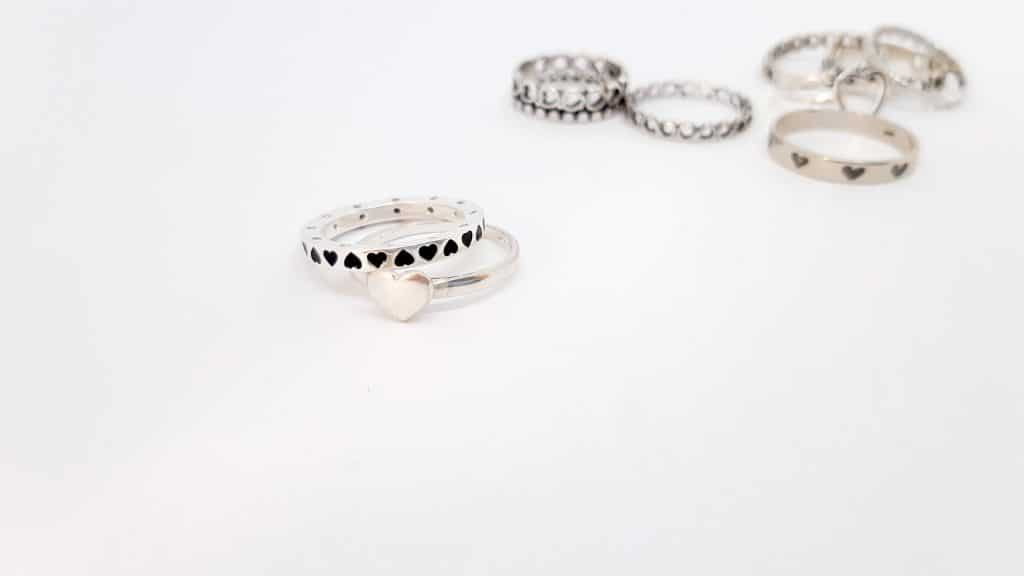
Toothpaste
Toothpaste is a traditional and straightforward DIY silver cleaning recipe that anybody can make. Make sure the toothpaste is not gel-based or abrasive.
Squeeze a tiny toothpaste onto a soft cloth or a paper handkerchief. Use circular movements to polish and clean the silver to remove tarnish and polishing compounds. Allow it to sit for 5 minutes before rinsing with water to remove the toothpaste.
After this procedure, the silver should be as clean and shiny as when you first purchased it.
Baking Soda and Lukewarm Water
Make a thick paste out of baking soda and lukewarm water and apply it to the silver. Use a moist cloth to apply it to the tarnished areas of the metal.
Allow it to sit for 2-3 minutes before gently rubbing with a soft towel. Prevent rubbing too hard on the surface to avoid scratching it. If there are any minute details or crevices, you may use a soft toothbrush to reach them and thoroughly clean them.
Use cold water to clean and dry your silver, then a soft towel to finish. Buff the silver in circular strokes to bring out its sheen.
Chrome
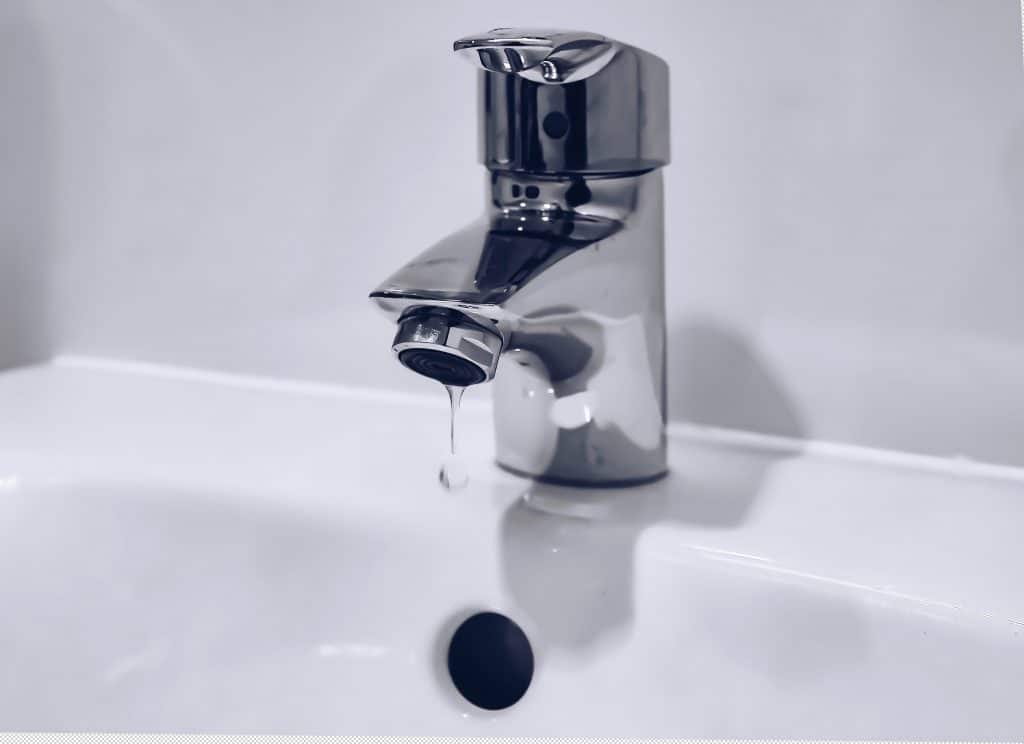
Aluminum Foil and Vinegar
You shouldn’t be disheartened if your chrome has lost its shine – you can restore it with an aluminum foil and vinegar technique.
Believe it or not, aluminum foil is a fantastic tool for polishing your chrome. Because aluminum is a softer metal, it will not scrape or injure your chrome in the same way as a stainless steel sponge would.
Take a little piece of aluminum foil, compress it into a ball, and dip it into a vinegar cleaning solution – you will be shocked at how fast your chrome will shine again after this simple procedure. Because vinegar is an acid, it is very effective at removing rust from chrome.
However, you should use it cautiously and sparingly, and it should not be left to rest for an extended period, especially if there isn’t a lot of rust or dirt to remove.
Pewter
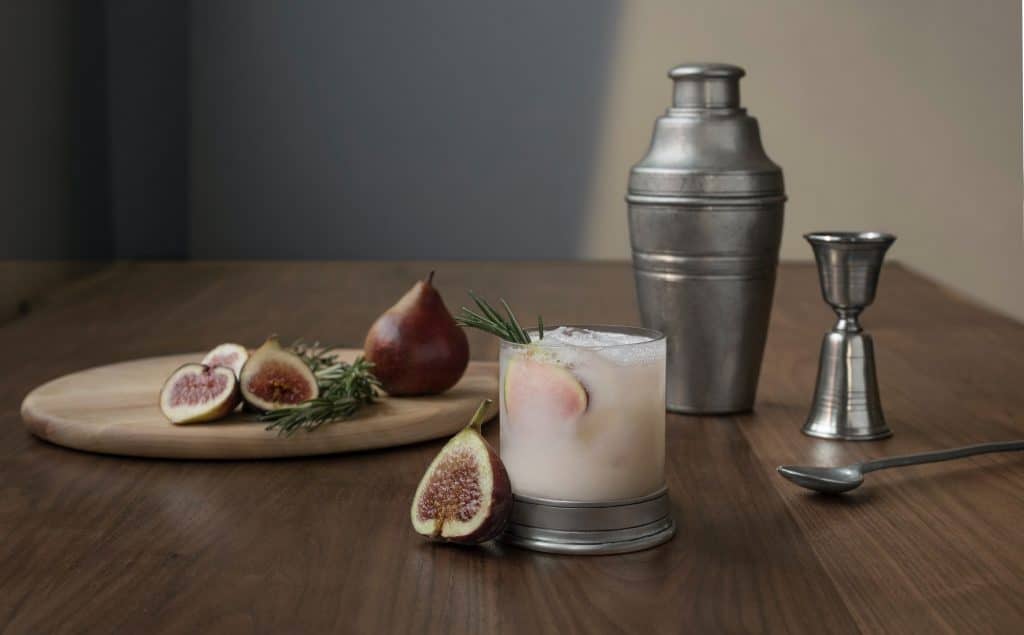
One of the most appealing characteristics of pewter is that it does not need as much polishing as silver since it does not tarnish as quickly. The patina on the pewter tends to brown gently and evenly over time, adding to its allure as time goes on.
Of course, regular cleaning is ideal for removing food particles and dust from the surface.
Fill a sink or bucket halfway with warm water and a few drops of biodegradable soap before beginning to clean the pewter. Put the pewter in a water sink and wash them with a microfiber cloth. If you cannot immerse the item, squeeze out the majority of the moisture using a dishcloth and use it to wipe the surface off.
Each pewter item should be rinsed with warm water or cleaned with a clean dishcloth immersed in fresh warm water to eliminate any soapy residue before using. To avoid water stains from minerals in the rinse water, dry each pewter piece with a microfiber towel after you rinse it.
Aluminum
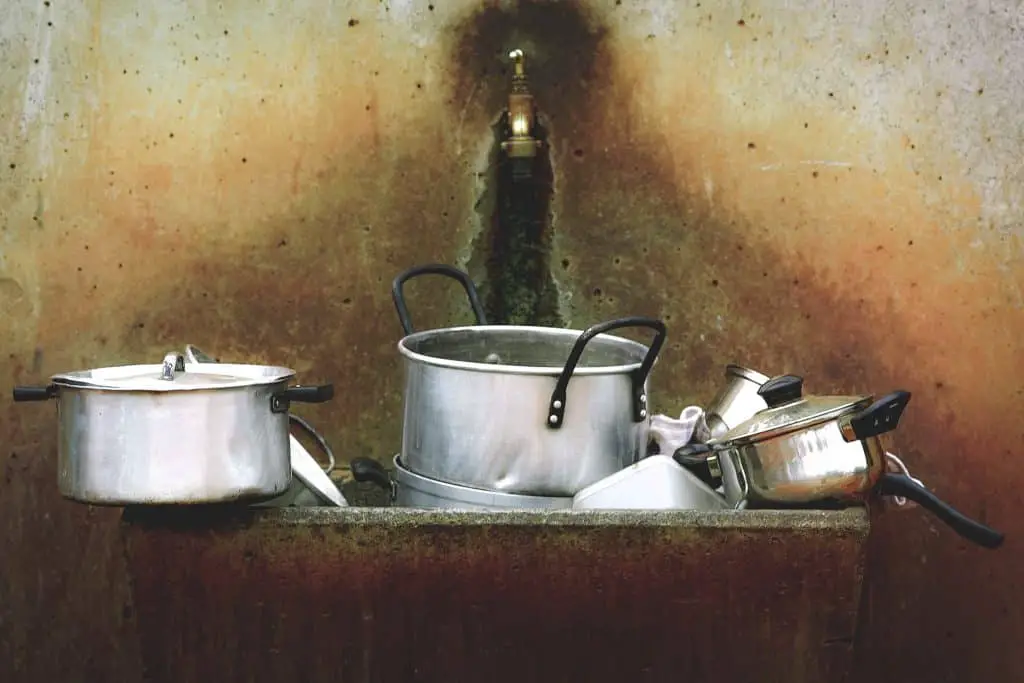
Cream of Tartar
You don’t have to shell out a lot of money to get it shiny and clean to shine aluminum at home. It is likely that you already have the stuff to prepare the polishing in your kitchen.
If you want to restore the lustrous appearance of aluminum, take two teaspoons of cream of tartar and pour it into your cup of warm water, constantly stirring, until a thick paste develops. Apply the mixture to the metal and buff the surface with the buffing pad to make it shine. To remove the residue, use a soft cloth to wipe it away.
Gold
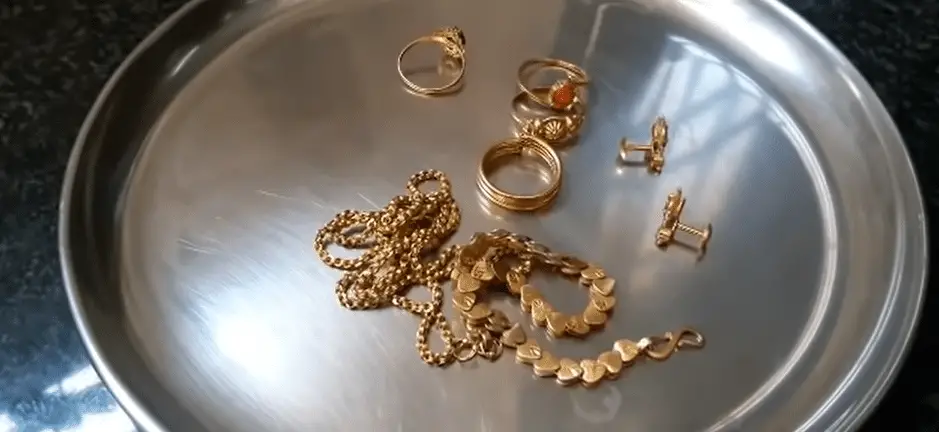
Toothpaste
The toothpaste you already have in your house is the most common product used for gold cleaning. In a small dish, mix toothpaste with water to make a paste. When applying the paste to gold, it should have a thick consistency to stick to the surface. Take a soft-bristle toothbrush and soak it in water for 5 minutes to remove the stains.
Now, dunk it into the paste using the brush and begin to scrape. Using the brush makes it simpler to clean the delicate edges of the gold and makes cleaning more convenient. After scrubbing your gold properly, rinse it well with water to ensure that no residue is left. Avoid teeth whitening toothpaste when cleaning gold jewelry since it can harm your costly jewelry.
Copper and Brass
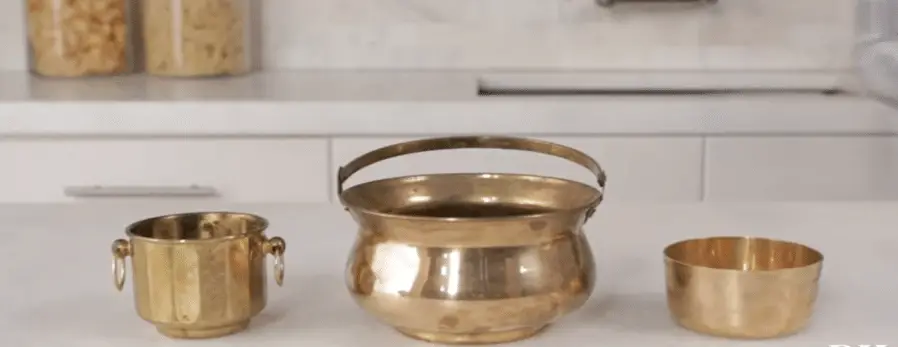
Ketchup
Who knew that ketchup includes acids that make it a very effective cleaning agent? It has a high concentration of acetic acid due to the vinegar used in its production.
The thick texture of the ketchup makes it ideal for polishing silverware, copper, brass, and other metals.
Ketchup should be squirted on the brass and let sit for a time. After about a half an hour — ideally a full hour — has elapsed, gently massage the copper and brass item with a soft, moist cloth or a gentle toothbrush to remove any remaining residue. Once you remove the buildup, rinse the brass well with clean water and wipe away any remaining ketchup with a clean towel.
Vinegar
For polishing copper and brass with vinegar, apply it to the worst stains and deposits. The vinegar should be applied liberally to the brass object and let it rest for about 10-20 minutes. Clean the surface with a damp clean cloth after rinsing.
Lemon Juice
Using lemon juice, cut a lemon in half, remove the meat, then rub salt into the interior of the lemon half. Rub the lemon over the brass and copper piece, reapplying salt as necessary. With a soft cloth, wipe down the brass and let it dry.
Stainless Steel
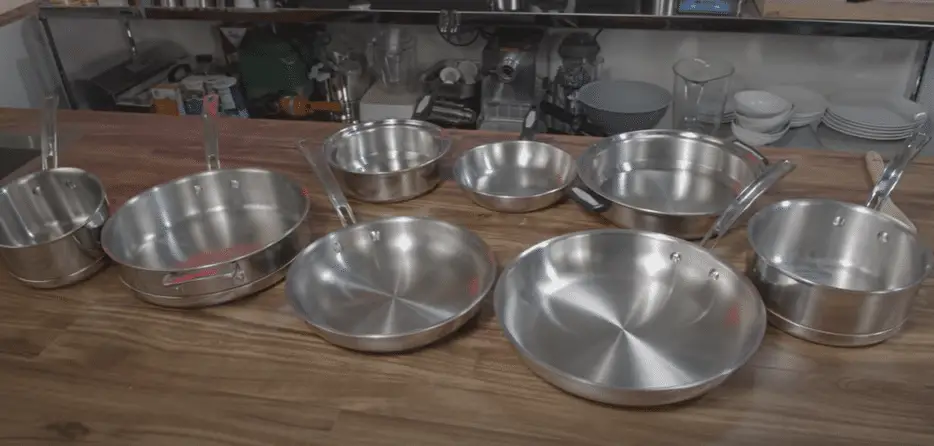
White Vinegar
You may use white vinegar straight on a microfiber cloth, or you can spray it directly onto a stainless steel surface. Allow it to settle for a brief while before wiping clean. Apply the vinegar as often as required to remove any filth from the stainless steel surface altogether.
Once the surface is clean, dip a clean cloth into some olive oil and rub it over it in the direction of the grain. If any leftover olive oil residue remains, wipe it away with a clean towel. This procedure is effective because the vinegar removes all of the filth, while the olive oil provides a new, shining finish.
Club Soda
You can also use club soda to polish or clean stainless steel. Spraying it directly onto appliances and then wiping it in the direction of the grain is recommended. Club soda will help clean the stainless steel surface and provide a great sheen. Wipe down with a delicate microfiber cloth to remove any residue.

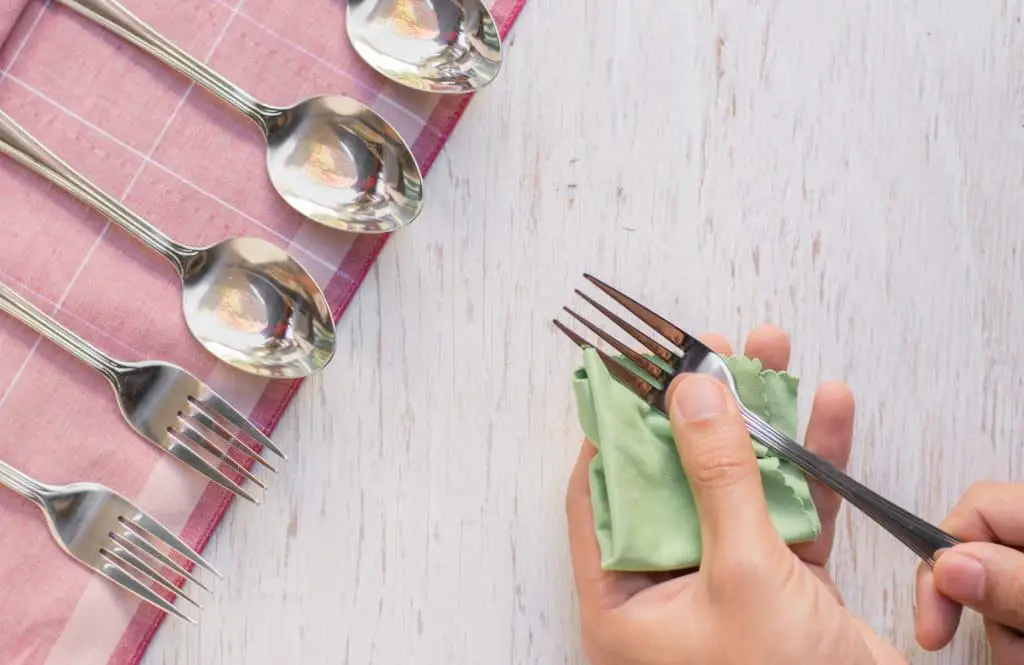


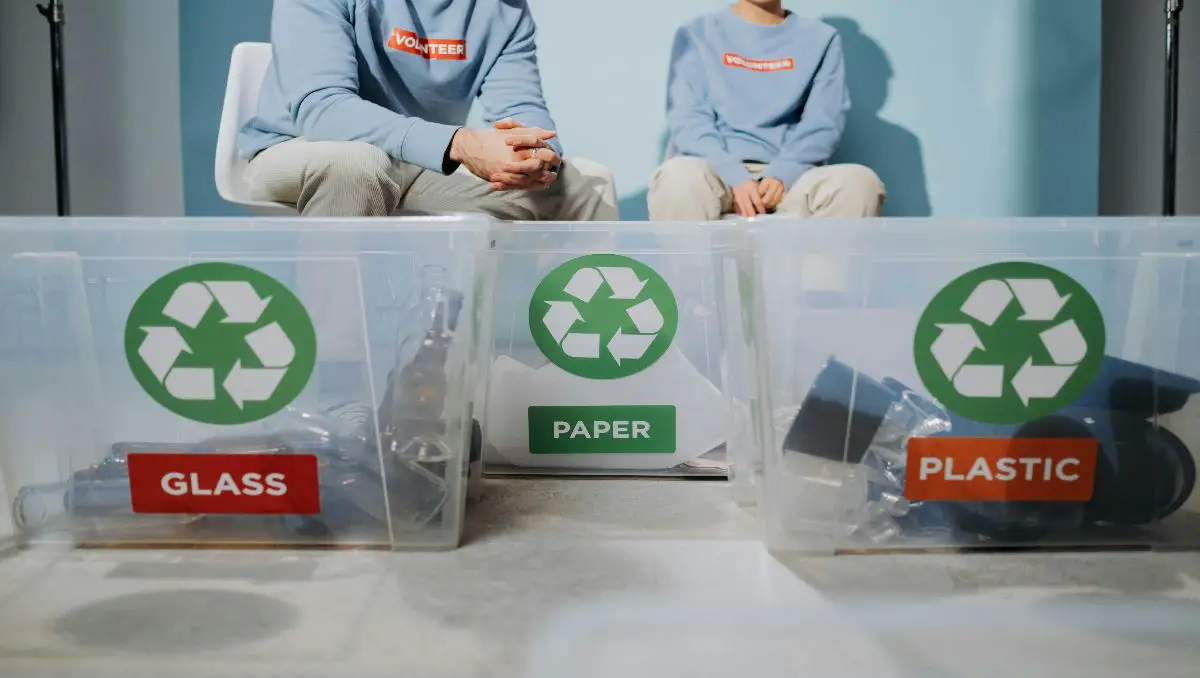
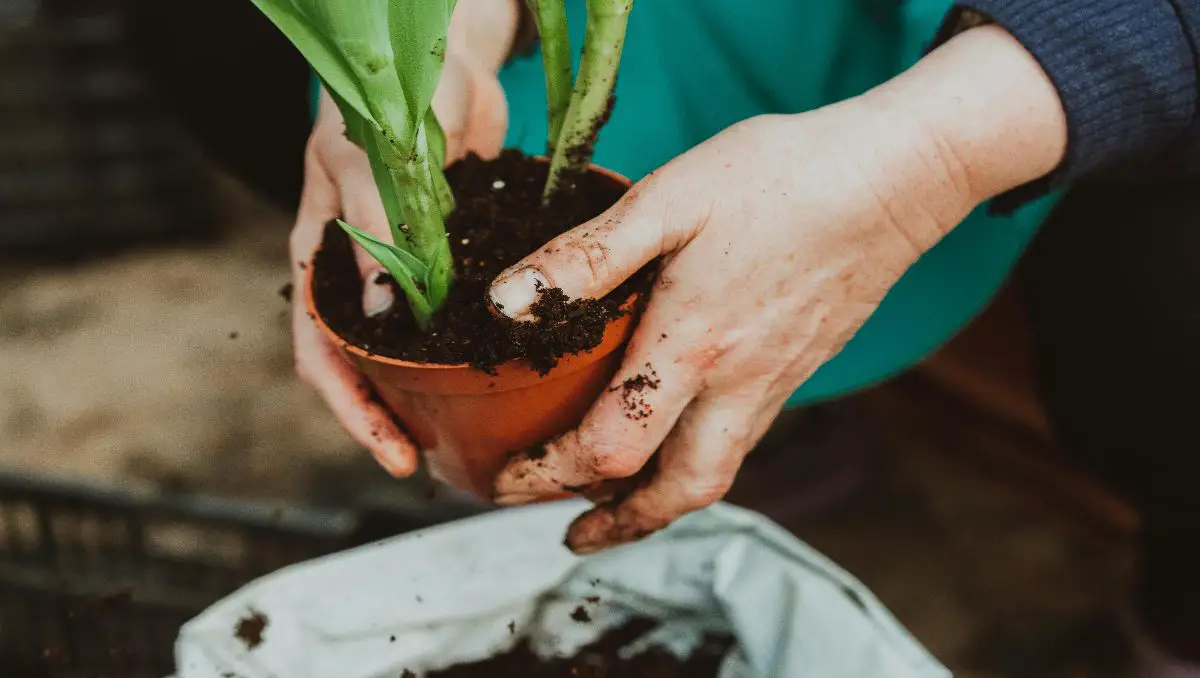
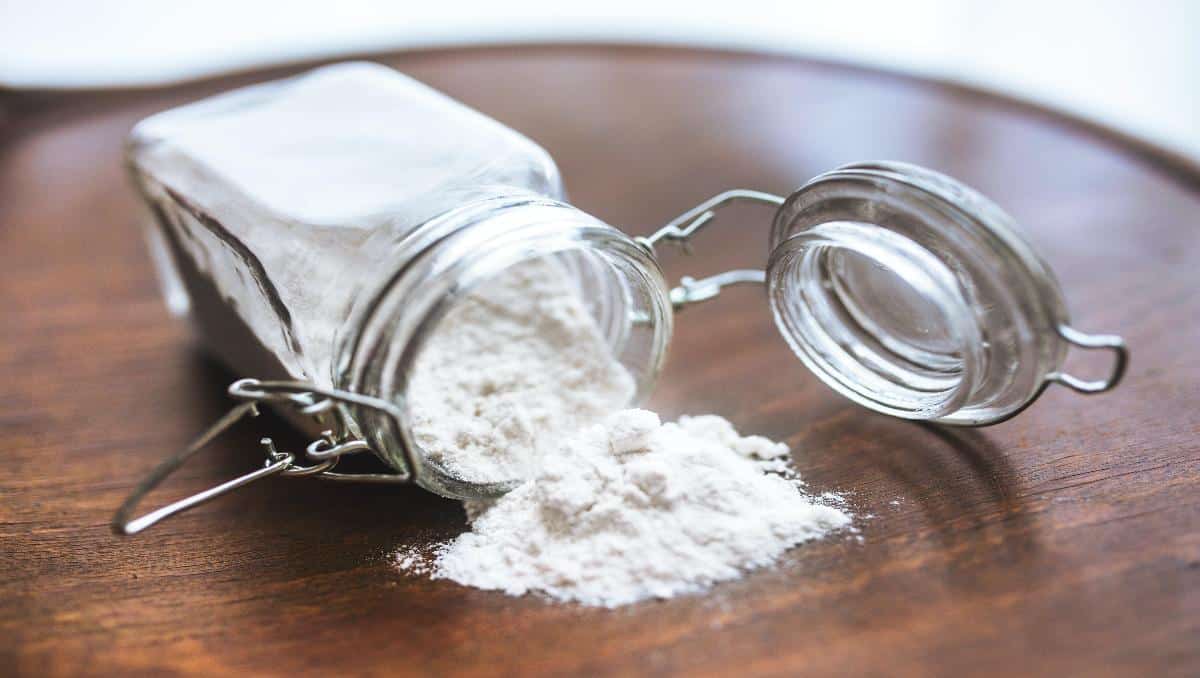
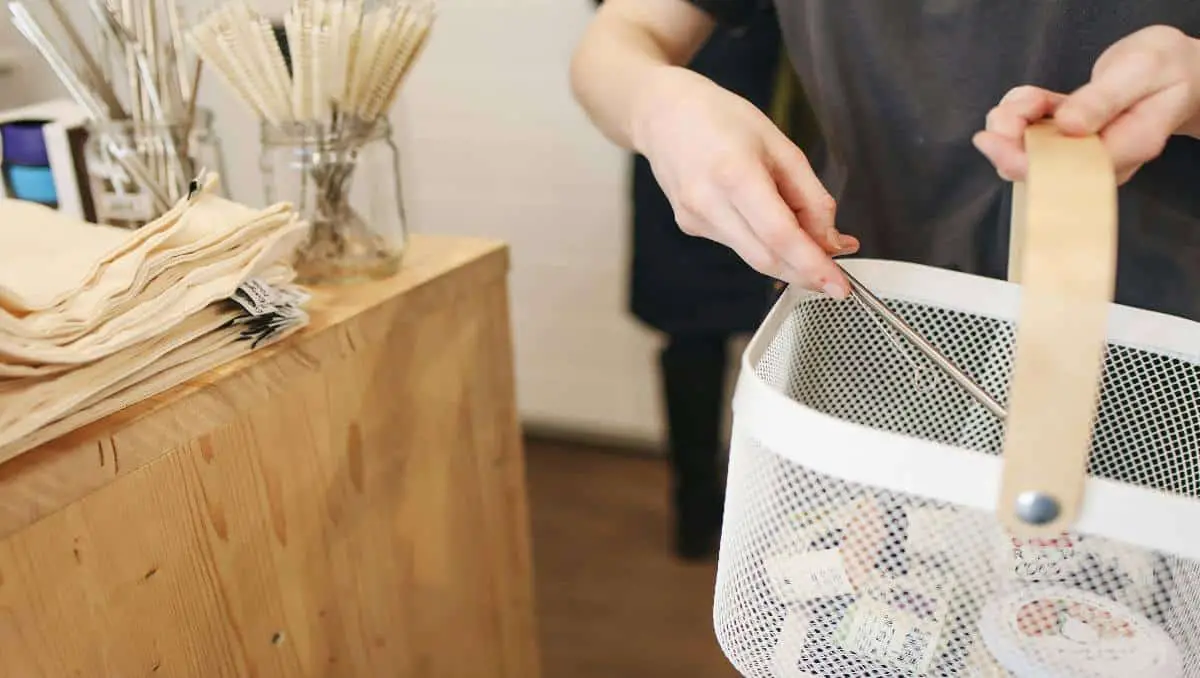
Not sure whether this is considered a “toxic chemical” or not, but cola soft drinks are a great rust remover. I used it for years when I lived near the beach and the sea air would rust everything.
Cola contains carbonic acid
Scott is correct. Carbonic acid is also in any fizzy drink, it’s formed when Co2 is added to water.
What about Nickel Brushed Nickel I can’t find anything anywhere. It’s like the forgotten metal
Do you know how to clean corosion off die cast metal with home made products?
I wouldn’t want to use toothpaste on any soft metals or anything very expensive because it could scratch it too easily.